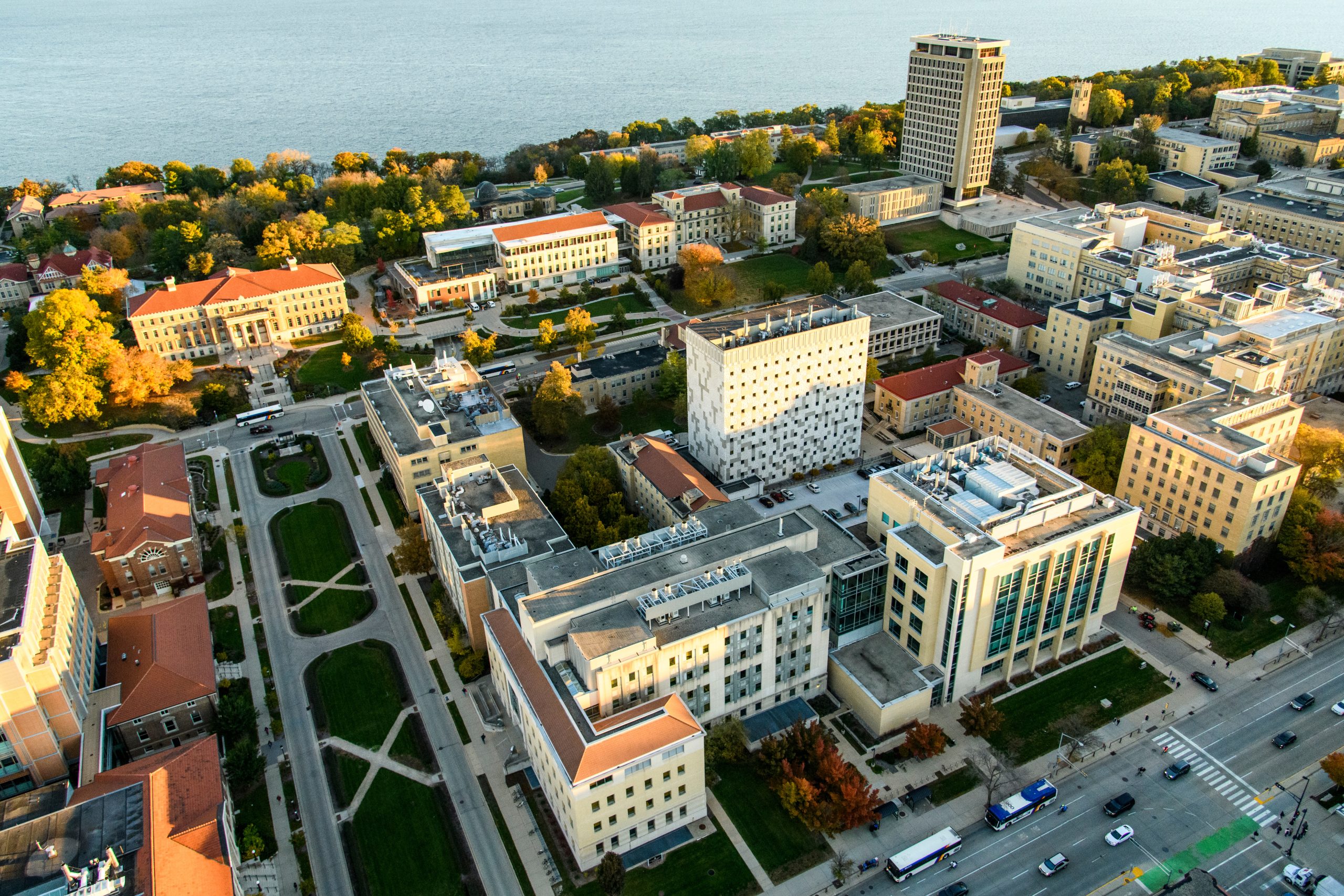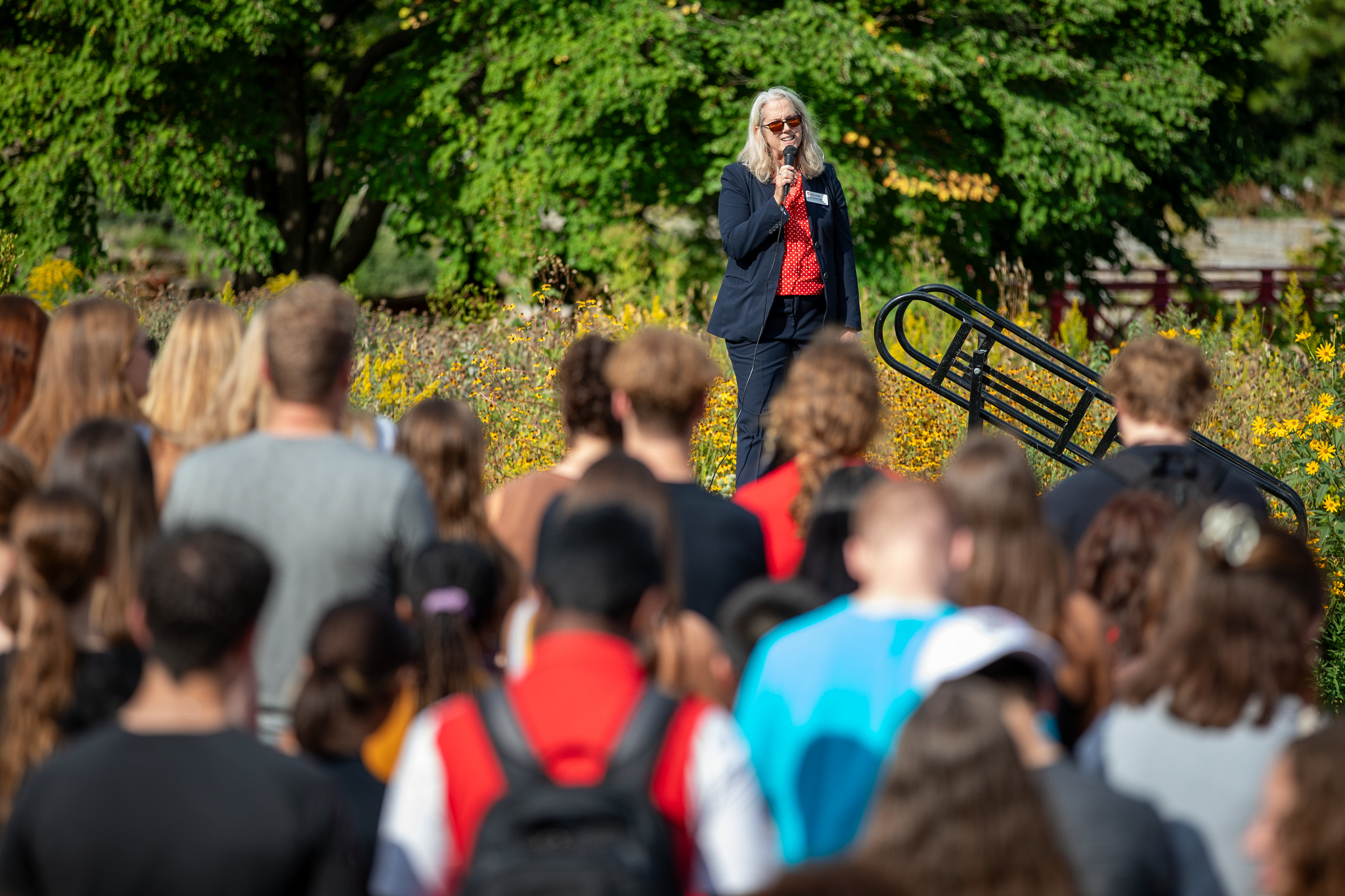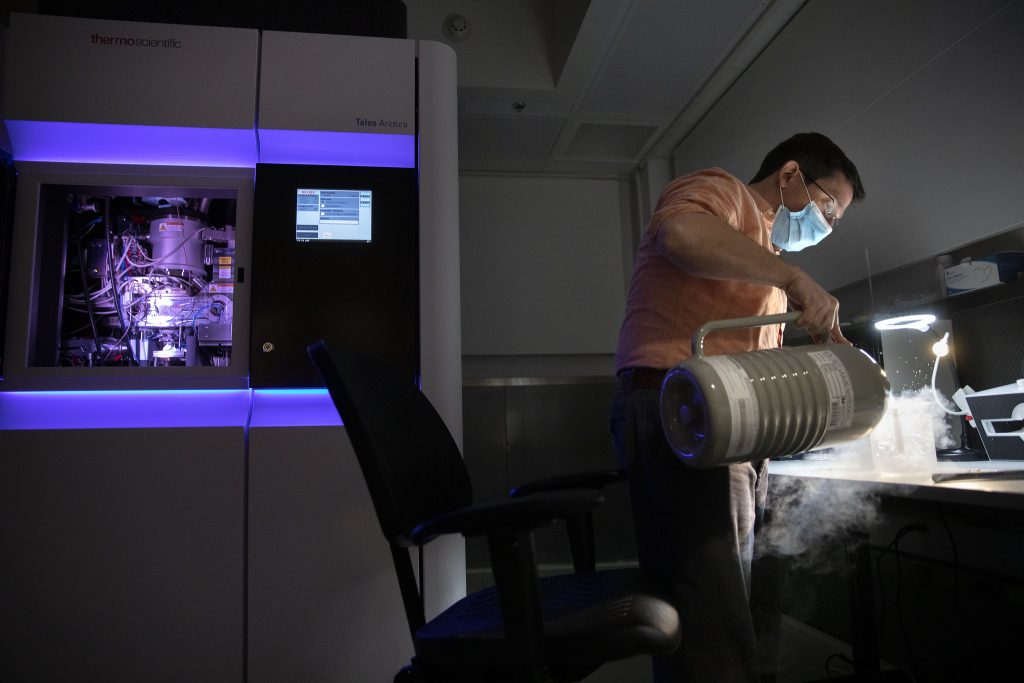
We’re growing the future
Located at the heart of the University of Wisconsin-Madison campus, the College of Agricultural and Life Sciences (CALS) is one of the oldest and most prestigious colleges devoted to the study of our living world.
Established in 1889, CALS carries out UW-Madison’s mission as a land-grant public university through excellence in teaching, research and public outreach across 15 academic departments. By encouraging collaboration and innovation across these fields, the college is working to address society’s grand challenges in the areas of food systems; ecosystems; climate change; bioenergy and bioproducts; economic and community development; and health and wellness.
CALS Mission
To advance and share knowledge, discover solutions, and promote opportunities in food and agriculture, bioenergy, health, the environment, and human well-being
Vision
To lead in science, innovation, and collaboration that improves life and sustains the natural world

“When students come to us, they’re not coming here to learn just traditional agriculture…they’re coming so that they are lifelong learners and can solve the problems they’re going to encounter in those careers.”
– Glenda Gillaspy, Dean and Director
academic excellence

CALS programs promote critical thinking and emphasize problem-solving to improve life and sustain the natural world.
Many CALS undergraduate students continue their education in graduate school or enter professional schools in medicine or veterinary medicine. Others pursue careers in biotechnology, conservation and recreation, communications, agriculture, human nutrition, animal health or public service.
advancing research
Researchers collaborate across disciplines and partner with communities, industry, nonprofit groups and others to discover solutions for the complex problems facing society.
The majority of CALS research is focused on sustainable agriculture; environmental conservation and climate resilience; bioenergy and bioproducts; basic life sciences and human health; rural development and community resilience.

Extension & outreach impacts
Several dozen CALS faculty and staff are jointly funded with the Division of Extension, placing them in positions to work closely with Wisconsin communities. The college offers a wide array of outreach opportunities, from the Wisconsin Master Cheesemaker program at its Center for Dairy Research to summer field days at its 11 agricultural research stations.
While much of the college’s outreach efforts take place within the boundaries of Wisconsin, CALS also maintains a strong international program housed in CALS Global.



A Place to Belong
In the fall of 2024 we’re launching an interim CALS Student Center, in the lower level of Ag Hall, as a step toward a more permanent fixture. For now, it’s a place meant for students to “plug in, power up, study, and chill” in between classes. It will continue to serve in this way into the future, but there’s bigger plans for a greater gathering place — a hub, a headquarters, a home — for the whole CALS community. Fundraising efforts have already begun.


Fostering an Inclusive Community
Diversity and inclusion are core values of the College of Agricultural and Life Sciences. We strive to make our climate the best it can be for all students, faculty and staff, and we are committed to offering an excellent learning and work environment.


Evolving History of CALS Departments
CALS has evolved and grown over the decades to reflect changes in the fabric of society and in the areas of knowledge that it studies.
CALS is currently home to 15 academic departments. Learn about the history of CALS departments from 1889 to present via a timeline and histories written by faculty and staff of UW–Madison.


Get CALS Connected
CALS News is the news site of the College of Agricultural and Life Sciences, featuring reporting on themes of food, health, environment, climate, bioenergy and more.
Grow magazine is published three times per year by CALS. The magazine reports on the most significant aspects of CALS research, teaching, and outreach.
